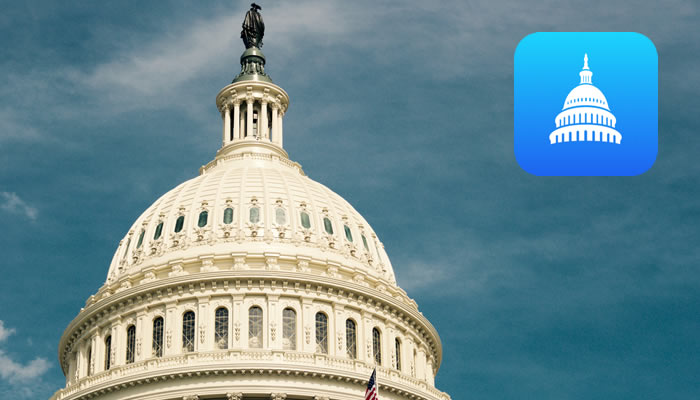Congress Rules against online privacy
Oliver Bradshaw | Last Updated:
Technical VPN Analyst

The next wave of attacks on internet privacy has come ashore this week, with the US Congress’ vote to completely repeal internet privacy regulations now in full swing. The law previously required websites and ISP’s to ask for customer and user permission before collecting and selling their data. Steve Wilmot, a prominent songwriter from Los Angeles has reacted to this in the same way as many of us: by looking for a VPN.
The new privacy rules not only affect American citizens either. Any user of American websites and social media will now be subject to massive data harvesting and have their data sold to the highest bidder, all without any knowledge of it. With these new severely weakened regulations, companies can now access consumer data extremely easily, and at any time.
Your Barrier is a VPN
As the war on privacy continues to rage a clear winner has emerged to protect your data from prying eyes, the humble and simple VPN. Just as you’d expect, or may already know, a VPN simply cloaks your data and general growing information by re-routing it through an anonymous server – so your data is completely disconnected from you.
A security adviser for F-Secure, Sean Sullivan, stated that their VPN server, Freedome, offers, “an encrypted tunnel from you to us,” as a response to the recent veto of online privacy laws. A direct result of the world’s attack on privacy has caused massive growth in VPN services, some of which could be malicious and unsafe so it’s vital that you do your research and check up on terms of service agreements says Runa Sandvik, the director of IT security at the New York Times.
Along with stating the threats to security, Ms Sandvik highlighted that F-Secure was a highly trusted and secure VPN service that consumers should have little worry about when using their services.
Where does your data go and what is collected?
As these new laws come into effect in the US and around the globe, who gets to see our data and where does it go? Primarily, to advertisers. A stated on Wired, your data is collected by ISP’s en masse and sold to advertising companies to perfectly target you with products that you may have not even searched for, but spoken to friends or family about online.
The issue goes even deeper than advertising though. Travis LeBlanc, former FCC enforcer stated that in some cases, any third-party can purchase large swaths of data that, “an ISP would simply hand over data for cash.” This presents a real problem when some of this data could be extremely sensitive, such as home addresses and purchase information.
Which VPN’s?
To protect yourself from this massive data harvest, finding an extremely secure VPN is essential. Otherwise, you can expect data to be recorded and sold to third-parties for advertising and other practices. After many years of personal testing, and countless positive feedback from our website users, we recommend both NordVPN and ExpressVPN as our two preferred VPN service providers. You can find more information and in-depth reviews of a number of VPN services in the VPN Reviews tab in our menu.
PRIVACY ALERT: Websites you visit can see your current IP Address:
- Your IP Address:
- Your Location: ,
- Your Internet Provider:
* Scammers, Governments, and Advertisers can use this information to track and target you.
Our recommended vpn service provider for general all-round internet security and online privacy is ExpressVPN. It offers an excellent selection of online security and internet privacy features, excellent speed, and the ability to unblock your favorite streaming services (Netflix, Hulu, Amazon Prime, BBC iPlayer).
Visit ExpresssVPNCategories: News

